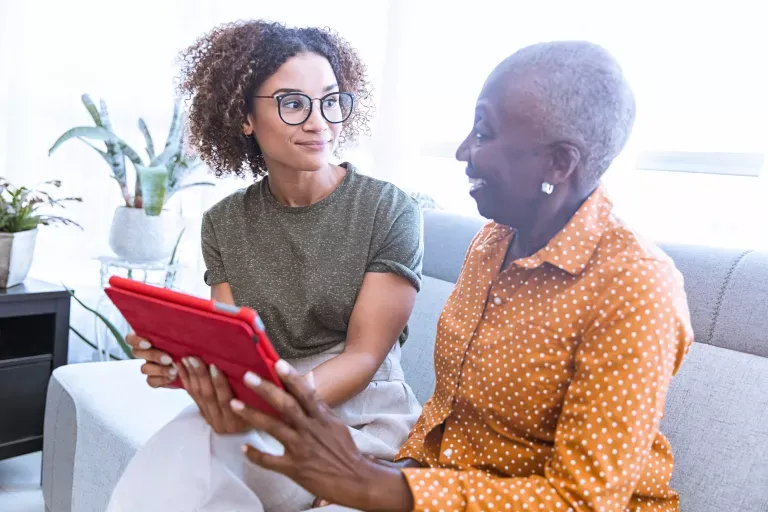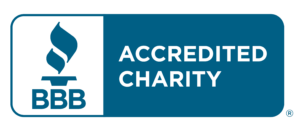Black Excellence in Medicine Is Moving the Needle in Cancer Prevention Efforts

Stock photo posed by models, sourced from Getty Images
Reducing cancer rates and improving cancer outcomes in the Black community requires a multifaceted approach, including listening.
This February in the United States, I am keenly aware of my observations of both Black History Month and National Cancer Prevention Month. I identify not only as a biracial Black American, but also as a former caregiver to someone with cancer — my late Black Haitian American dad. I share my reflections with these considerations of my intersectional identities and experiences in mind.
Black History Month dates back to Carter G. Woodson’s celebration of the accomplishments of Black Americans. The celebration, which started in February 1926, became officially recognized as Black History Month in 1976. National Cancer Prevention Month, a time to raise awareness about cancer risk factors and prevention strategies, was developed by the American Association for Cancer Research (AACR). It was first officially recognized in 2014.
While we know that cancer is a leading cause of death among Black Americans, we also acknowledge that many of these cases can be prevented or detected early for better outcomes through structural, systemic, and lifestyle changes.
Let’s take a moment to honor contemporary Black American medical doctors who have made advancements in cancer care with a focus on access, screening, and prevention while also highlighting statistics and strategies for cancer prevention in the Black and African American community.
Black Excellence in Contemporary Medicine
Cancer affects all populations, but studies have shown that Black Americans experience unique challenges when it comes to cancer prevention, diagnosis, and treatment. These challenges often stem from factors like access to healthcare, socioeconomic conditions, and sometimes, cultural and historical barriers.1
The good news is that through awareness, lifestyle changes, and increased access to resources, cancer prevention efforts can be effective in the Black and African American community.
Robert A. Winn, M.D., and Lori Pierce, M.D., two Black American medical doctors, exemplify innovative and thoughtful approaches with their work in the cancer prevention and treatment space.
Dr. Winn serves as director of the Virginia Commonwealth University Massey Comprehensive Cancer Center and is a pulmonologist and oncologist. His strong focus on understanding cancer disparities, innovative community engagement, and trust-building with people from communities who have been historically mistreated or not included in research has helped to improve healthcare access for people impacted by cancer overall.
One strategy Dr. Winn uses involves visiting — and listening to — community members in rural, ethnic minority, or low-income areas so that genuine trust and understanding of that community’s needs and concerns are addressed. These “district walks” have been cited by public health experts as novel, transformative and impactful, and community members have agreed.
Dr. Pierce was the first African American woman president of the American Society of Clinical Oncology (ASCO) and is now professor of radiation oncology and Vice Provost for Academic and Faculty Affairs at the University of Michigan. Her research interests include radiotherapy advancement for breast cancer and improving outcomes for people with the BRCA1/2 breast cancer susceptibility gene.
Through her previous work as chair for both ASCO’s Health Equity and Prevention Committees, Dr. Pierce helped develop a plan to educate and inform people about how social determinants of health and structural barriers to quality care impacts them individually and systemically.
Understanding Cancer Risks
Certain types of cancer are more prevalent in Black Americans, including prostate cancer, breast cancer, lung cancer, and colorectal cancer. Understanding these risks is the first step in prevention.
Prostate cancer: Black men have the highest rate of prostate cancer in the United States.2It’s important for Black men to be proactive about regular screenings, especially after the age of 40.3 Early detection can make a significant difference in treatment and survival outcomes.
Breast cancer: Black women are more likely to be diagnosed with breast cancer at a later stage, which can affect survival rates.4 Regular screenings such as mammograms, beginning at age 40 or earlier depending on family history, are essential in detecting breast cancer early.5
Lung cancer: Smoking is the leading cause of lung cancer, and while rates of smoking have decreased overall, lung cancer remains a serious risk for both Black men and women.6, 7 Avoiding smoking or quitting altogether is one of the most effective cancer prevention strategies.
Colorectal cancer: Black Americans are more likely to develop colorectal cancer, particularly at younger ages.8 Starting regular screenings at age 45 is crucial, or earlier if there’s a family history of colorectal cancer.
Tips to Reduce Cancer Risk
Making healthy lifestyle choices — including maintaining a healthy diet and getting regular exercise — can lower the risk of developing many types of cancer.
Access to Healthcare and Screening
Access to healthcare plays a significant role in cancer prevention and early detection. Black Americans, particularly those in low-income communities, may face challenges such as living in areas with limited healthcare access or food access, limited access to specialists, lack of health insurance, and mistrust of the medical system due to historical and contemporary injustices. Addressing these barriers can significantly improve cancer outcomes.
- Get screened regularly: Regular screenings are one of the most effective ways to detect cancer early, when it’s more treatable. It’s important to work with healthcare providers to understand your individual screening needs and get screened at the recommended times.
- Know your family history: A family history of cancer can increase your risk, so it’s essential to talk with your healthcare provider about your family’s medical history. This information can help you understand your risk and take proactive measures to monitor your health.
- Seek support and advocacy: Various organizations offer support and education for Black Americans about cancer prevention. Cancer Support Community offers resources, awareness campaigns, and advocacy to improve health outcomes for Black community members and each and every person impacted by cancer.
- Address mistrust of healthcare systems: Historical and contemporary mistreatment of Black Americans in medical settings has created mistrust and distrust, which can deter individuals from seeking the care they need. Building trust through community outreach, education, and improved healthcare policies is essential for increasing cancer screening and prevention in Black communities.
Watch our latest installment in our award-winning docuseries, Justified Medical Mistrust: Acknowledging the Past to Change the Future. Or stream the series here.
Strengthening Our Community
Cancer prevention is not just about individual choices — it’s also about community support, education, and systemic change. In the Black community, it’s vital that we create spaces for conversations about health and our own family medical history, encourage one another to stay up to date with screenings, and advocate for better access to healthcare services.
- Education and awareness: Increasing awareness about cancer risks and prevention strategies in schools, churches, and community centers can help foster a culture of health within the Black community. By sharing information and supporting each other, we can work to reduce cancer-related disparities.
- Community health programs: Supporting and expanding programs that provide free or low-cost screenings, as well as educational resources, can help bridge the gap in access to healthcare. Community health workers can play a key role in connecting individuals with necessary services and encouraging preventative care.
Cancer prevention in Black Americans requires a multi-faceted approach — education, healthy lifestyle choices, regular screenings, and greater access to healthcare services. By understanding risk factors, making informed decisions about lifestyle habits, and advocating for improved healthcare access, the Black community can significantly reduce cancer rates and improve overall health outcomes.
It’s crucial for individuals, families, and communities to come together to prioritize cancer prevention, ensuring a healthier future for all.
About the Author
Audrey Davis has created, secured funding, and implemented CSC’s Cancer Disparities Toolkit, Center for Health Equity in Oncology, award-winning Justified Medical Mistrust docuseries, and the IDEAL Ambassador Program, and has supported several other cross-department initiatives. Audrey also champions CSC’s internal DEI and Health Equity work and leads a Health Equity working group.
Audrey is a former caregiver to her father, who passed away due to complications from colorectal cancer when she was 24 years old. Her personal experiences as a caregiver have shaped her professional career trajectory and continue to impact her program ideation, creation, implementation, and evaluation with internal and external partners at CSC and beyond.


